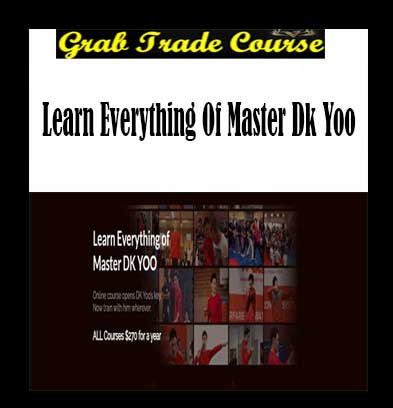A Home Health Approach to Traditional Rehabilitation: Functional Strategies for Treating Cognitive Disorders – Kimberly R. Wilson
Description
A Home Health Approach to Traditional Rehabilitation: Functional Strategies for Treating Cognitive Disorders – Kimberly R. Wilson download , A Home Health Approach to Traditional Rehabilitation: Functional Strategies for Treating Cognitive Disorders – Kimberly R. Wilson review , A Home Health Approach to Traditional Rehabilitation: Functional Strategies for Treating Cognitive Disorders – Kimberly R. Wilson free
A Home Health Approach to Traditional Rehabilitation: Functional Strategies for Treating Cognitive Disorders – Kimberly R. Wilson
Cognitive disorders often accompany traumatic brain injury and other neurological disorders. The cluster of deficits can interfere with activities of daily living, goal attainment, and safety. Due to the nature of cognitive disorders, it can also interfere with progress in physician ordered therapy to improve functional skills of daily living and safety.
The decreasing inability to attend to, process, or recall information, and difficulty problem solving while executing a task can result in increased frustration and decreased quality of life for those with cognitive impairments. The families of these patients often have increased anxiety related to their loved one’s safety in independent living, and feel helpless in aiding their loved ones in boosting cognitive success in daily life. Accurate assessment and diagnosis coupled with an individualized treatment plan is crucial to improving a patient’s safety and quality of life.
In this recording, clinicians will learn how to create a patient-centered environment that facilitates increased practicality in assessing and treating cognitive disorders. In addition to providing an overview of the characteristics of cognitive impairments, clinicians will learn functional ways to track client progress and to facilitate increased generalization of techniques from the clinical setting to the patient’s home setting. Lastly, clinicians will take away practical tips on how to educate and incorporate the patient’s family in therapy for continued cognitive success long after discharge from formal cognitive rehabilitation.
- Identify the characteristics of a cognitive disorder
- Compare between severity levels based on daily function and standardized assessments
- Distinguish what co-morbidities are present or contributing to cognitive deficits
- Create a patient-centered setting
- Recognize patients’ goals in order to write patient-centered goals for improved positive treatment outcomes
- Design goal oriented treatment plans based on increasing positive patient outcomes
- Evaluate objective measures of functional gains in treatment
- Outline an education plan for caregivers on how to be a cognitive support for the patient
THE HOME HEALTH MODEL
- Definitions
- Benefits and limitations
- Clientele
- Elderly
- Sufferers of debilitating physical or mental illness
- Military service members
- Differences from traditional therapy
COGNITIVE DEFICITS
- Causes
- Symptoms
- Types of deficits
- Differentiations between cognition and executive functio
CREATING A PATIENT-CENTERED ENVIRONMENT
- Assessment
- Standardized evaluations
- Traditional
- Computer-based
- Clinical observation
- Key elements to survey
- Home evaluation
- Standardized evaluations
- Diagnosis
- Severity
- Critically thinking about the results of assessment and clinical observation
- Impacting factors
- Medication
- Pain
- Family dynamics
- Mental or behavioral health issues
- Severity
- Treatment
- Patient-centered goals for the clinician and patient
- Strategies
- Home modification
- Home Cognitive Exercise Program
- High level therapy models
- Return to work or school
- Hobby-based
EDUCATION
- Patient
- Family or support system
- Staff
CASE STUDIES
- Rehearse application of the principles of patient-centered care
- Stroke
- Dementia
- Traumatic Brain Injury
- Practice all phases of patient-centered care
- Assessment/diagnosis
- Treatment
- Discharge
Frequently Asked Questions:
- Innovative Business Model:
- Embrace the reality of a genuine business! Our approach involves forming a group buy, where we collectively share the costs among members. Using these funds, we purchase sought-after courses from sale pages and make them accessible to individuals facing financial constraints. Despite potential reservations from the authors, our customers appreciate the affordability and accessibility we provide.
- The Legal Landscape: Yes and No:
- The legality of our operations falls into a gray area. While we lack explicit approval from the course authors for resale, there’s a technicality at play. When procuring the course, the author didn’t specify any restrictions on resale. This legal nuance presents both an opportunity for us and a boon for those seeking budget-friendly access.
- Quality Assurance: Unveiling the Real Deal:
- Delving into the heart of the matter – quality. Acquiring the course directly from the sale page ensures that all documents and materials are identical to those obtained through conventional means. However, our differentiator lies in going beyond personal study; we take an extra step by reselling. It’s important to note that we are not the official course providers, meaning certain premium services aren’t included in our package:
- No coaching calls or scheduled sessions with the author.
- No access to the author’s private Facebook group or web portal.
- No entry to the author’s exclusive membership forum.
- No direct email support from the author or their team.
We operate independently, aiming to bridge the affordability gap without the additional services offered by official course channels. Your understanding of our unique approach is greatly appreciated.
- Delving into the heart of the matter – quality. Acquiring the course directly from the sale page ensures that all documents and materials are identical to those obtained through conventional means. However, our differentiator lies in going beyond personal study; we take an extra step by reselling. It’s important to note that we are not the official course providers, meaning certain premium services aren’t included in our package:
Refund is acceptable:
- Firstly, item is not as explained
- Secondly, Item do not work the way it should.
- Thirdly, and most importantly, support extension can not be used.
Thank you for choosing us! We’re so happy that you feel comfortable enough with us to forward your business here.
- Innovative Business Model:









Reviews
There are no reviews yet.